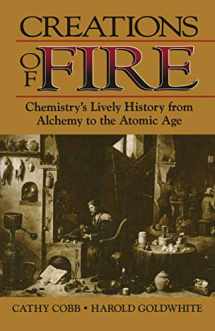
Creations of Fire
Book details
Summary
Description
he history of chemistry is a story of human endeavor-and as er T ratic as human nature itself. Progress has been made in fits and starts, and it has come from all parts of the globe. Because the scope of this history is considerable (some 100,000 years), it is necessary to impose some order, and we have organized the text around three dis cemible-albeit gross--divisions of time: Part 1 (Chaps. 1-7) covers 100,000 BeE (Before Common Era) to the late 1700s and presents the background of the Chemical Revolution; Part 2 (Chaps. 8-14) covers the late 1700s to World War land presents the Chemical Revolution and its consequences; Part 3 (Chaps. 15-20) covers World War I to 1950 and presents the Quantum Revolution and its consequences and hints at revolutions to come. There have always been two tributaries to the chemical stream: experiment and theory. But systematic experimental methods were not routinely employed until the 1600s-and quantitative theories did not evolve until the 1700s-and it can be argued that modem chernistry as a science did not begin until the Chemical Revolution in the 1700s. xi xii PREFACE We argue however that the first experiments were performed by arti sans and the first theories proposed by philosophers-and that a rev olution can be understood only in terms of what is being revolted against.


We would LOVE it if you could help us and other readers by reviewing the book
Book review



